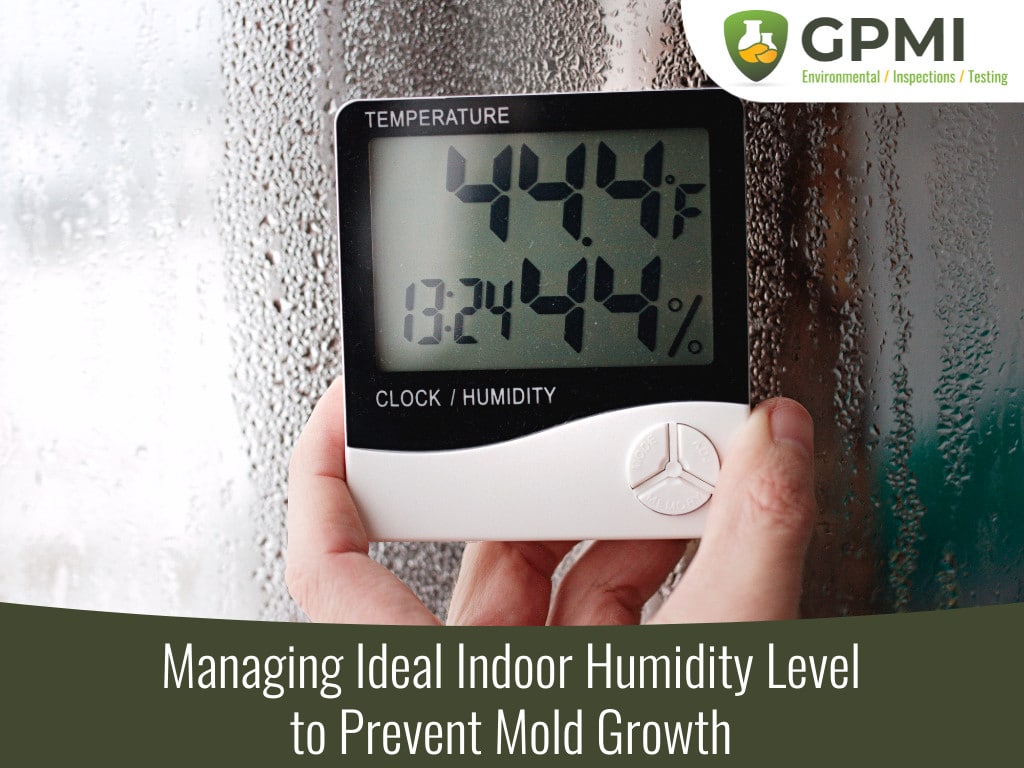How to Find Water Leaks Inside a Wall & What to Do About It?

Maintaining the structural integrity of your home is incredibly important. Not only does it keep you safe from the elements, but it also helps improve your home’s curb appeal and value.
One of the most important aspects of home maintenance is making certain that your walls aren’t hosting any hidden water leaks. Left unchecked, these can cause costly property damage and create an environment ripe for mold growth.
So, how can you tell if there is a water leak inside your wall? In this post, we’ll discuss how to find water leaks inside a wall and what to do about them.
5 Signs of a Water Leak in Your Wall
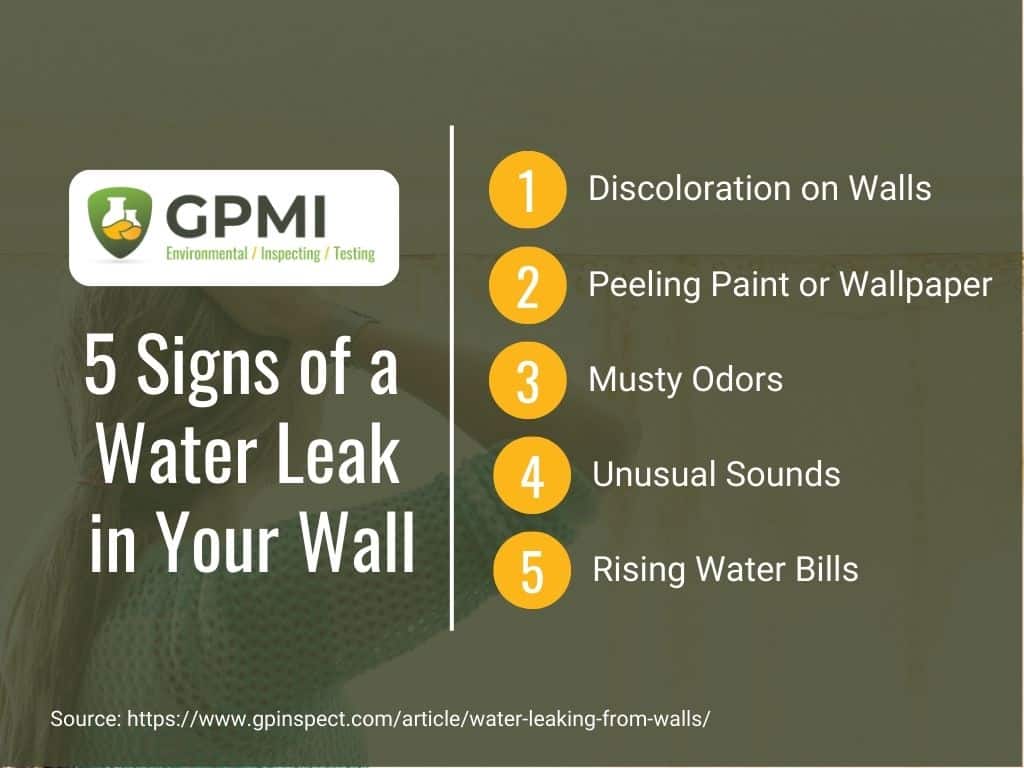
While the best way to identify a water leak in your walls is to hire a professional, there are some tell-tale signs that may indicate a water leak problem. These include:
1. Discoloration on Walls
One of the more obvious signs that you may have a water leak in your wall is discoloration or staining on the walls. This can be indicative of a slow drip in your plumbing system that has been going on for some time and is now starting to show its effects.
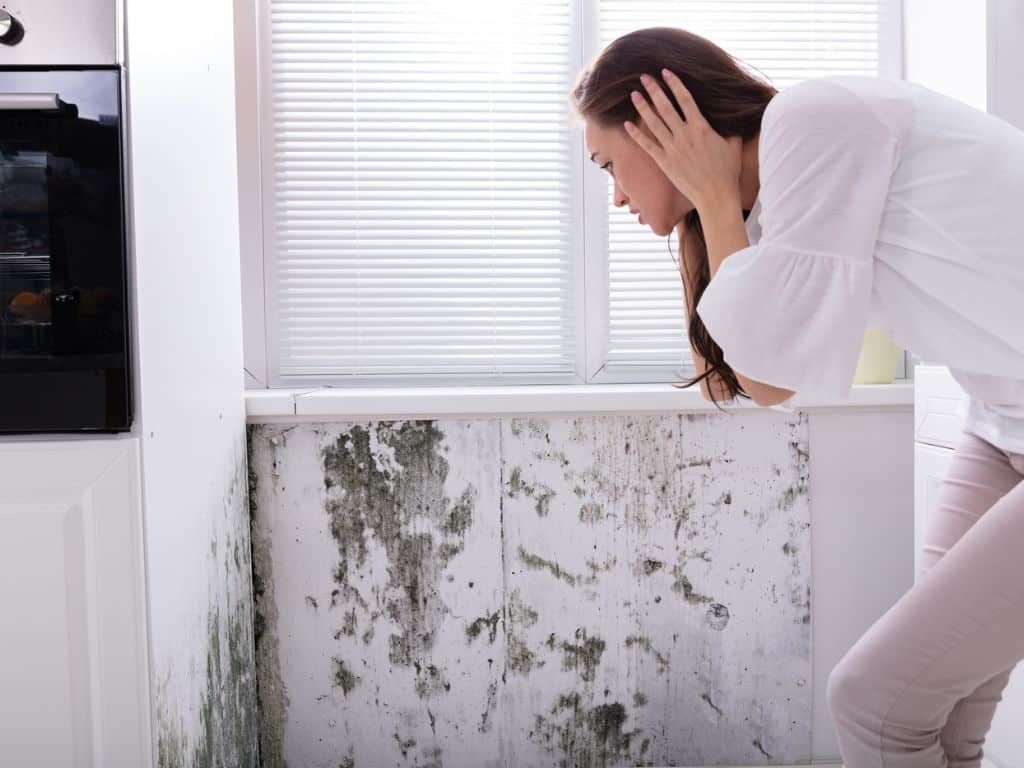
It is important to note that discoloration does not always indicate a water leak, as it could be the result of other factors, such as humidity or poor ventilation in the room. In any case, ignoring the problem could lead to mold growth and other serious issues. So, it’s best to call in a professional for further inspection.
2. Peeling Paint or Wallpaper
Another sign of a water leak is peeling paint or wallpaper. This usually occurs in areas where the moisture levels have been too high for too long, allowing the paint and wallpaper to become loose and peel away from the wall. In some cases, this may be accompanied by bulging, water stains, discoloration, and other signs of damage.
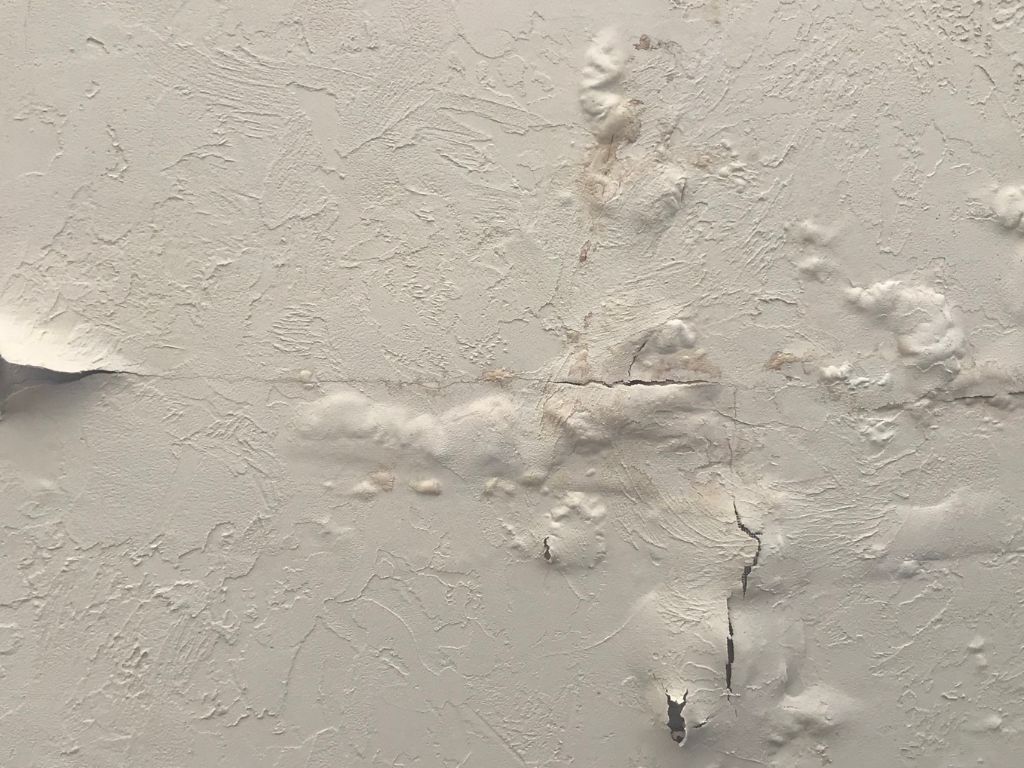
If you notice any of these signs, get your home inspected by a professional as soon as possible. Leaving the issue untreated could lead to severe foundation damage and other costly repairs. In fact, according to the Insurance Information Institute, water damage is one of the most common and expensive reasons for homeowners insurance claims.
3. Musty Odors
If you notice an odd, musty smell coming from a certain area of your home, it could be a sign that you have water leakage. This smell is often described as a damp, earthy scent and can be indicative of mold growth or stagnant water.

By the time you start to notice this smell, it’s likely that your indoor air quality has been compromised. Mold spores can travel through your home’s air ducts and cause respiratory irritations, skin rashes, and a host of other health issues. So, along with plumbing repairs, you may need to invest in air quality testing and remediation.
4. Unusual Sounds
Another tell-tale sign of a water leak is an unusual sound coming from a certain area of the wall. This could be anything from a thumping, tapping, or humming to a consistently running or dripping sound. Any of these sounds could be a sign of a water leak, especially if it’s coming from a specific region of the wall.
If you hear any strange sounds coming from your walls, it’s important to contact a professional immediately to investigate and determine the cause. Letting the problem go untreated could lead to costly repairs down the line.
5. Rising Water Bills

Finally, if you’ve noticed a spike in your water bills and can’t pinpoint the reason for it, it may be due to a hidden water leak. Water bills can fluctuate for a variety of reasons, such as increased use or changes in the local water rates. But if there’s no obvious explanation, it could be a sign that you have an unseen water leak somewhere in your home.
Again, the best way to identify the cause of any sudden spikes in your water bills is to get an expert to investigate the issue. They will be able to diagnose the issue and offer the best solutions for repair.
How to Find Water Leaks in Your Walls
Now that we have touched on the tangible signs of water leakage, let’s discuss how you can actually find the source of the problem. Although it’s best to hire a professional for the job, here are a few steps you can take to try and locate the leak on your own:
Get a Moisture Meter
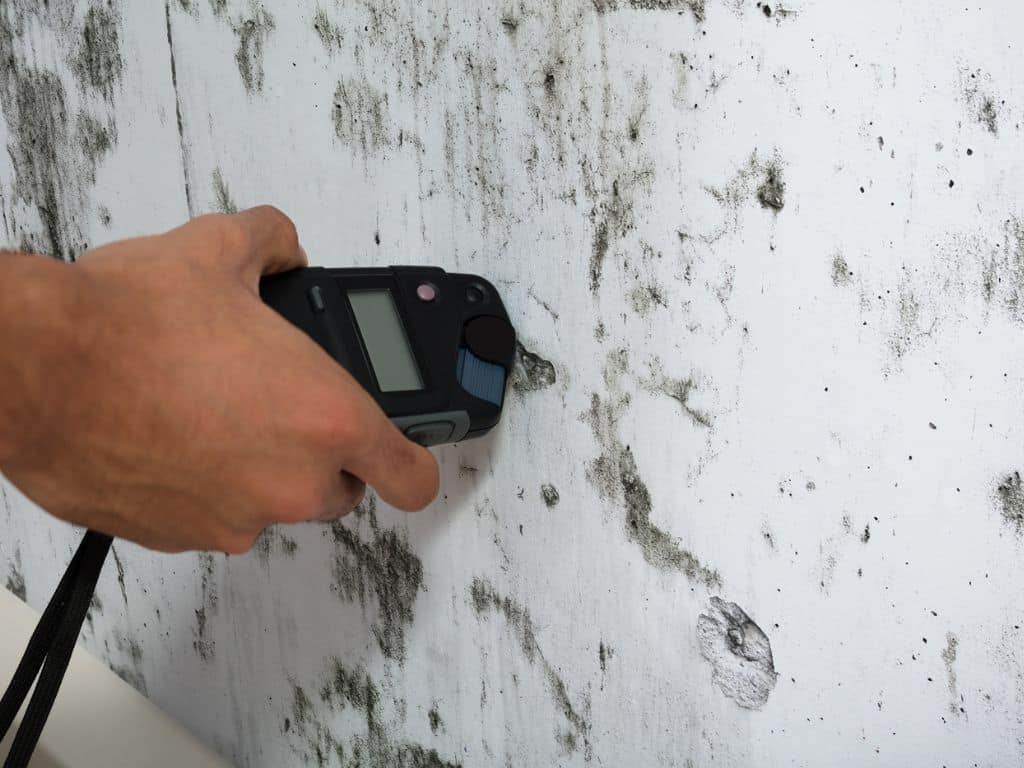
A moisture meter is one of the most effective tools used to detect water leaks in a home. This device measures the moisture levels in walls, floors, and ceilings. A normal drywall, concrete, and other materials reading should be less than one percent. Anything higher than that may be a sign of a water leak.
You can purchase a moisture meter from your local hardware store or online. However, be aware that these devices may not be as accurate as the ones used during a professional inspection.
Use an Infrared Camera
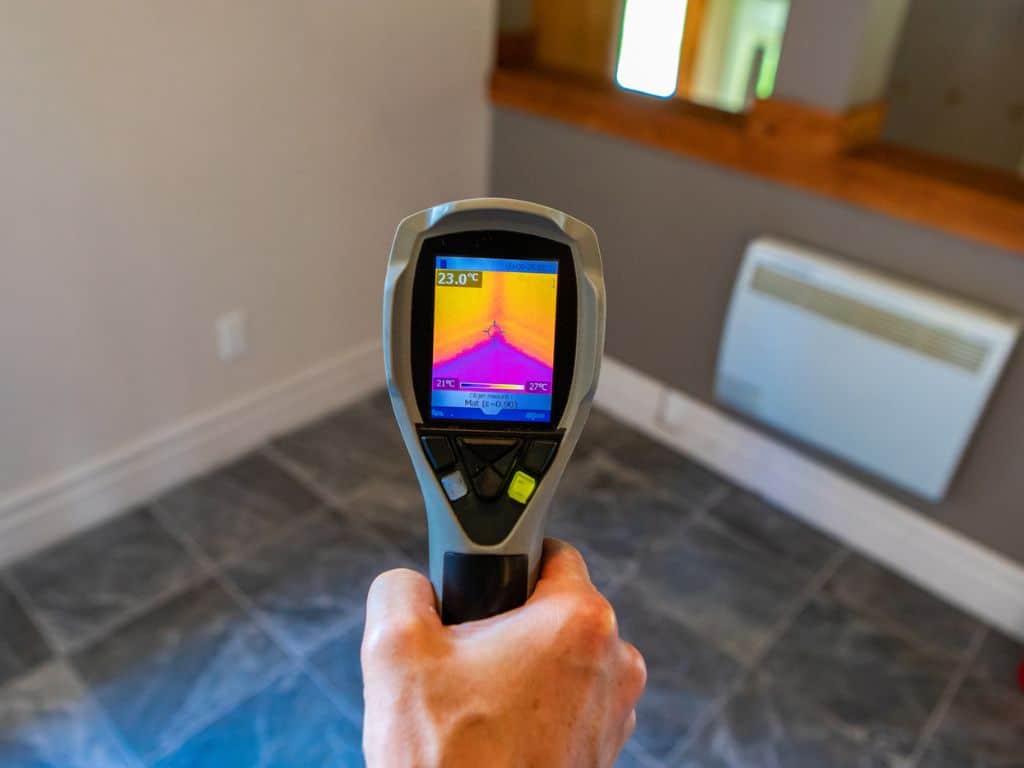
Another helpful tool for finding hidden leaks in your home is an infrared camera. This device detects changes in temperature, which can help pinpoint the source of a leak. An infrared camera can also be used to detect mold growth and other signs of water damage.
You can rent this device from most hardware stores or hire a professional who already has one on hand. Just be sure to read the instructions carefully before attempting to use it on your own.
Cut Into Your Drywall
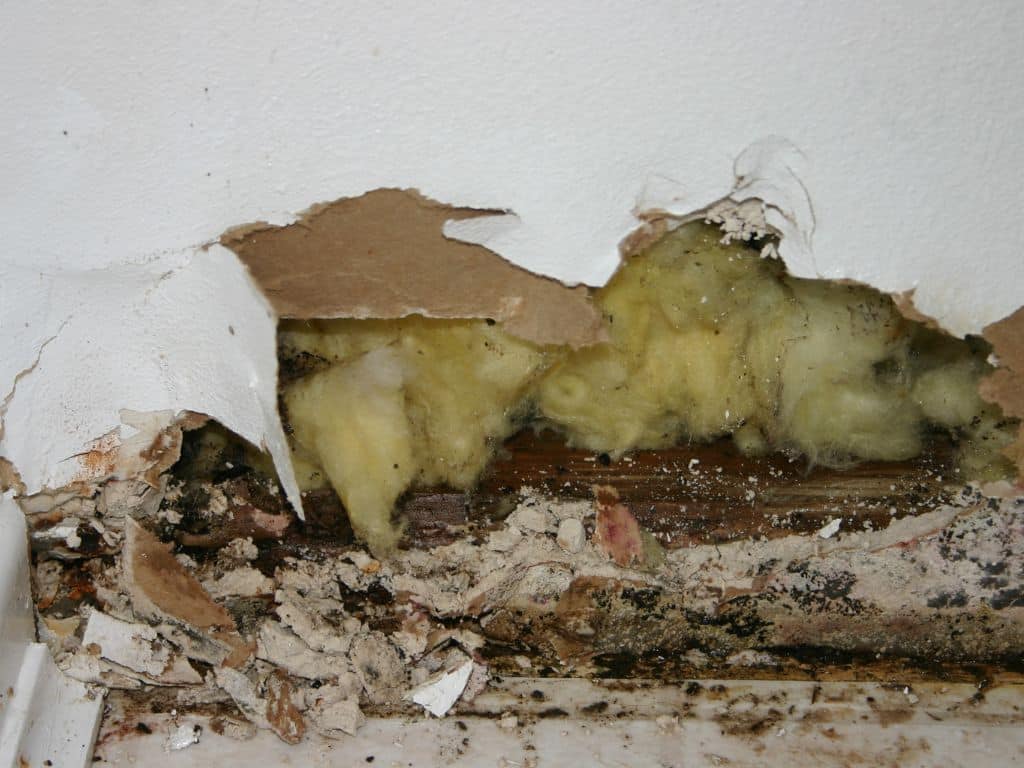
If all else fails, you may need to resort to cutting into your drywall in order to get a visual look at the area where you suspect the leak is coming from. This is a risky move and should only be done as a last resort.
Before you attempt this on your own, it’s best to consult with a professional who can assess the situation and advise you on the best course of action. Oftentimes, they will be able to accurately diagnose the issue without having to cut into any walls. However, if you do decide to cut into your drywall, wear protective gear, such as gloves and a mask, to prevent any potential health hazards from mold spores.
Frequently Asked Questions
How to Find Out Where a Water Leak Is Coming From?
A water leak can come from various sources, such as a burst pipe, faulty appliance, or roof damage. If you suspect a water leak in your home, start by checking for visible signs of water damage, such as puddles or damp spots on walls and ceilings. You can also turn off all the water sources in your house and check if the water meter continues to run; this could indicate an active leak.
If you are unable to locate the source of the leak yourself, it is best to call in an inspector who has specialized tools and techniques to identify hidden leaks.
How Can I Prevent Water Leaks in My Home?
There are several preventative measures you can take to reduce the risk of water leaks in your home. Some examples include:
- Regularly inspect and maintain your interior plumbing system, including pipes, faucets, and appliances.
- Keep an eye out for any signs of moisture or water damage and address them promptly.
- Monitor your water bill for any sudden increase that could indicate a leak.
- Make sure your roof is in good condition and free of any damage that could lead to roof leaks.
- Properly seal windows and doors to prevent water from your sprinkler system or rainwater from seeping inside.
Does Homeowners Insurance Cover Water Leaks in Walls?
It depends on the specific policy and coverage you have. Generally, standard homeowners insurance will cover sudden and accidental water damage, such as a burst pipe or appliance malfunction. However, it may not cover gradual leaks that result from wear and tear or neglect.
Can a Water Leak Affect My Health?
Yes, a water leak can have adverse effects on your health. Standing water from leaks can create an environment for mold and bacteria to grow, which can cause respiratory issues and allergies. If the wall leak is coming from a sewage line, it poses an even greater risk of exposure to harmful pathogens.
The Wrap Up
Water leaks can have disastrous consequences if left untreated. That’s why it’s so important to be aware of the signs and symptoms of a possible water leak in your home. If you notice any of the tell-tale signs discussed above, contact a professional immediately to investigate the issue and recommend the best course of action for repair.
The team at GP Inspects is here to help if you have any questions about water leaks. We offer comprehensive mold and air quality inspections to ensure your home is safe and free of hazards.
Contact us today to learn more about our services. We look forward to hearing from you!
Published: March 27, 2023
Updated: May 8, 2025





